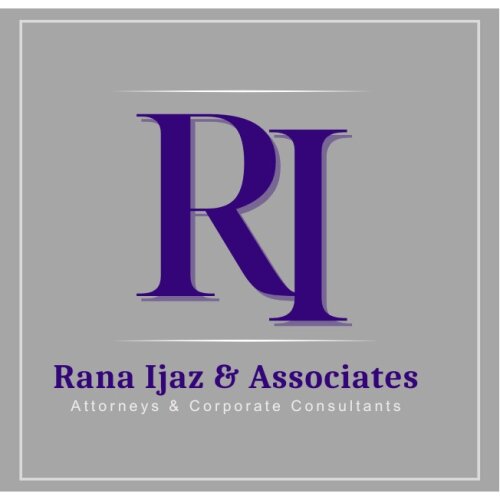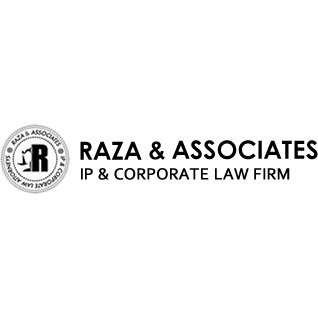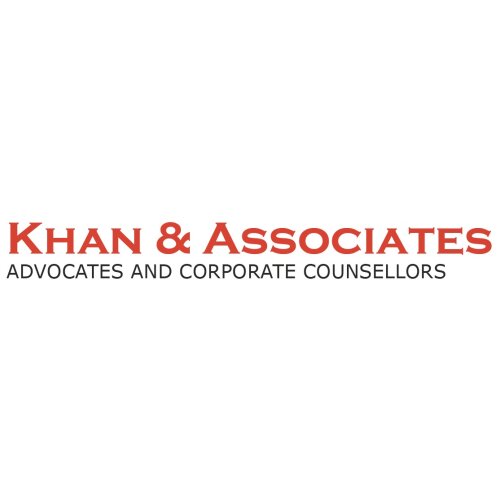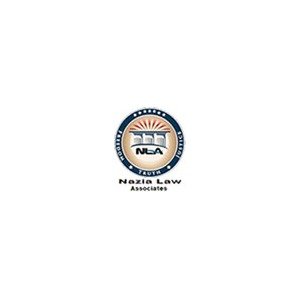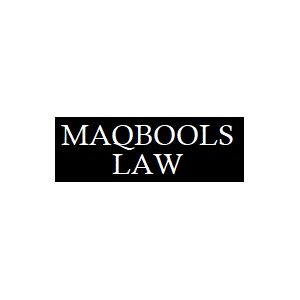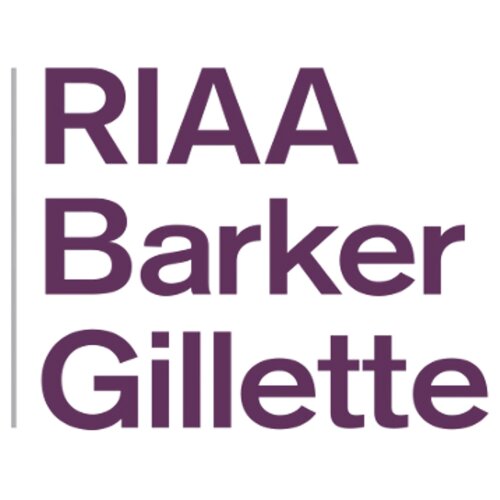Best Water Law Lawyers in Lahore
Share your needs with us, get contacted by law firms.
Free. Takes 2 min.
List of the best lawyers in Lahore, Pakistan
About Water Law in Lahore, Pakistan
Water Law in Lahore, Pakistan, governs the ownership, use, allocation, and protection of water resources within the region. This field of law addresses both surface and groundwater, aiming to ensure equitable distribution and sustainable management of essential water resources. Given Lahore's rapid urbanization and the agricultural demands surrounding the city, water-related legal disputes and policy considerations are increasingly relevant for individuals, businesses, and communities. Water Law in Lahore is shaped by a combination of provincial legislation, federal regulations, and local government policies, as well as Pakistan's international commitments regarding water management.
Why You May Need a Lawyer
Engaging a lawyer in Water Law is often necessary when you face disputes or legal complexities related to water rights and usage. Common situations include:
- Landowners disputing access to irrigation water or canal systems
- Businesses seeking permits for groundwater extraction or water discharge
- Communities affected by water pollution or diversion of rivers and canals
- Real estate developments requiring water assessments and approvals
- Farmers negotiating water-sharing agreements
- Legal action regarding contaminated water supplies that impact public health
- Compliance with environmental standards and government directives on water use
Due to the complex intersection of local, provincial, and federal rules, a lawyer can provide clarity, defend your interests, and ensure compliance with all applicable laws.
Local Laws Overview
Multiple legal regimes in Lahore govern water resources:
- Punajb Irrigation Act, 1873 - Forms the basis for managing surface water, canal irrigation systems, and the allocation of irrigation rights to farmers and landowners.
- Punajb Water Act, 2019 - Aims to regulate the extraction, conservation, and management of surface and groundwater, empowering the Punjab Water Resources Commission.
- Punajb Environmental Protection Act, 1997 - Places restrictions on water pollution and prescribes penalties for environmental violations affecting water quality.
- Local Government Ordinances - Local bodies like the Lahore Development Authority have regulations regarding building permits, drainage, sewage, and water supply systems.
- WASA (Water and Sanitation Agency) Regulations - WASA oversees water supply and wastewater management within Lahore, enforcing standards and issuing necessary permissions.
- There are also national policies, such as the National Water Policy, and Pakistan's obligations under the Indus Waters Treaty with India, which impact local water management.
Legal compliance with these acts is crucial for both individuals and organizations to avoid penalties and protect their water-related interests.
Frequently Asked Questions
What is the primary law regulating water use in Lahore?
The Punjab Water Act, 2019, is the main legal instrument for water usage, management, and conservation in Lahore and across Punjab province.
Who owns water resources in Lahore?
Water, including surface and groundwater, is generally considered a public resource regulated by the government. The state holds the authority to allocate water rights and issue extraction permits.
How are water rights allocated among landowners?
Water allocation, especially for irrigation, is managed by the provincial government under the Punjab Irrigation Act. Rotation and quota systems are commonly used, and disputes are resolved by local irrigation officials or water tribunals.
Can I legally extract groundwater for my property?
Extraction of groundwater usually requires registration or permission from the appropriate authority, such as WASA in urban areas and the Punjab Water Resources Commission. Over-extraction without permission can result in fines or legal action.
What should I do if my neighbour diverts or blocks my water supply?
You can file a complaint with the local irrigation department or appropriate local authority. Legal action may be brought before civil courts or the relevant water tribunal if resolution is not achieved.
Are there restrictions on discharging wastewater into local rivers or drains?
Yes, strict regulations under the Punjab Environmental Protection Act require individuals and businesses to treat wastewater before discharge. Violations can lead to substantial fines and closure of operations.
Which agency provides water supply and regulates connections in Lahore?
WASA (Water and Sanitation Agency) is responsible for water supply connections and quality within the Lahore metropolitan area.
How are disputes over canal or irrigation water resolved?
Disputes are typically handled by irrigation officials at the local level. If unresolved, formal complaints can be taken to water tribunals or civil courts with jurisdiction over the area.
Is it possible to legally transfer water rights in Lahore?
Water rights are generally attached to land and may be transferred as part of property sales, subject to approval from relevant authorities and compliance with water allocation regulations.
What are the penalties for violating water laws in Lahore?
Penalties can range from fines and suspension of water rights to imprisonment in severe cases, particularly for actions causing pollution or unauthorized extraction of ground or surface water.
Additional Resources
If you are seeking guidance or further information about Water Law in Lahore, the following organizations can be helpful:
- Punjab Irrigation Department - Handles permissions, allocation, and disputes related to irrigation systems.
- WASA (Water and Sanitation Agency) Lahore - Manages urban water supply, connections, and complaints.
- Punjab Environmental Protection Agency - Supervises water quality standards and environmental compliance.
- Punjab Water Resources Commission - Oversees groundwater management and issuance of permits under the Punjab Water Act, 2019.
- Lahore High Court and Local Water Tribunals - Jurisdictions for legal disputes related to water rights and usage.
- Legal Aid Centers and Bar Associations - Can connect you with lawyers specializing in Water Law and offer preliminary legal advice.
Next Steps
If you believe you need legal assistance concerning water law issues in Lahore, follow these steps:
- Identify the specific nature of your water law concern, such as access, disputes, permits, or pollution.
- Gather all relevant documents, permits, correspondence, and evidence related to your matter.
- Reach out to the appropriate regulatory body, such as WASA, the Punjab Irrigation Department, or the Environmental Protection Agency, to seek initial guidance or file a complaint if necessary.
- Consult a qualified lawyer who specializes in Water Law in Lahore for legal advice and representation. Legal directories, bar associations, or referrals from relevant agencies can help you find reputable professionals.
- Discuss your options with your lawyer, whether you need mediation, official complaints, or litigation in courts or water tribunals.
- Stay informed about future developments in local water policies and regulations to remain compliant and protect your rights.
Timely legal consultation can save you from unnecessary disputes, ensure compliance with intricate regulations, and safeguard your interests concerning water access and quality in Lahore.
Lawzana helps you find the best lawyers and law firms in Lahore through a curated and pre-screened list of qualified legal professionals. Our platform offers rankings and detailed profiles of attorneys and law firms, allowing you to compare based on practice areas, including Water Law, experience, and client feedback.
Each profile includes a description of the firm's areas of practice, client reviews, team members and partners, year of establishment, spoken languages, office locations, contact information, social media presence, and any published articles or resources. Most firms on our platform speak English and are experienced in both local and international legal matters.
Get a quote from top-rated law firms in Lahore, Pakistan — quickly, securely, and without unnecessary hassle.
Disclaimer:
The information provided on this page is for general informational purposes only and does not constitute legal advice. While we strive to ensure the accuracy and relevance of the content, legal information may change over time, and interpretations of the law can vary. You should always consult with a qualified legal professional for advice specific to your situation.
We disclaim all liability for actions taken or not taken based on the content of this page. If you believe any information is incorrect or outdated, please contact us, and we will review and update it where appropriate.





